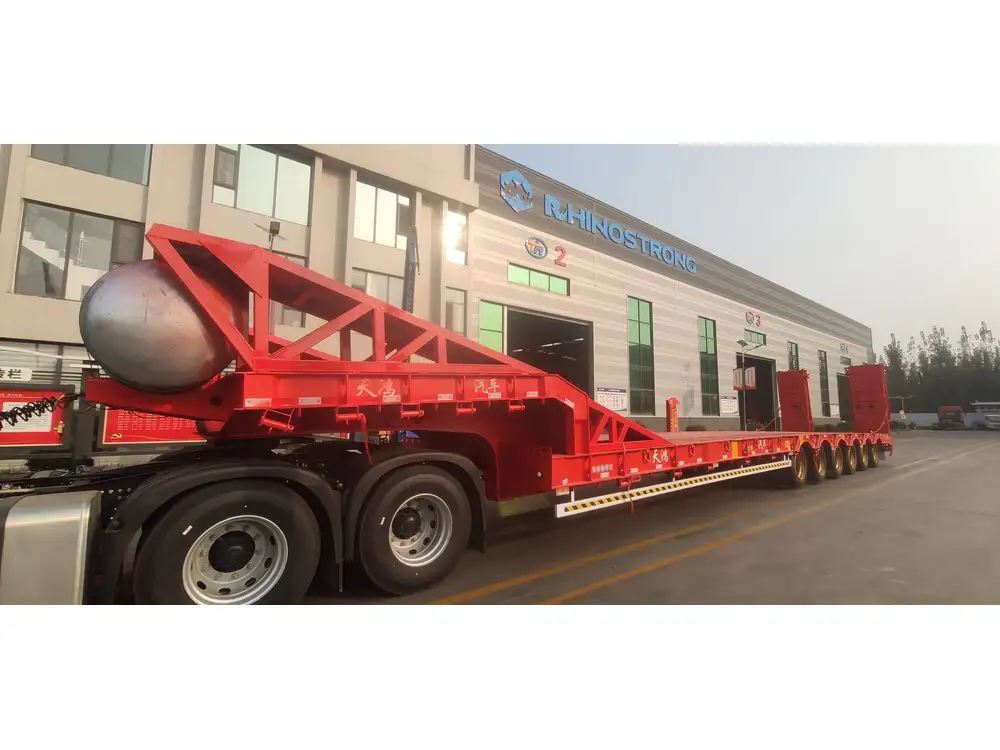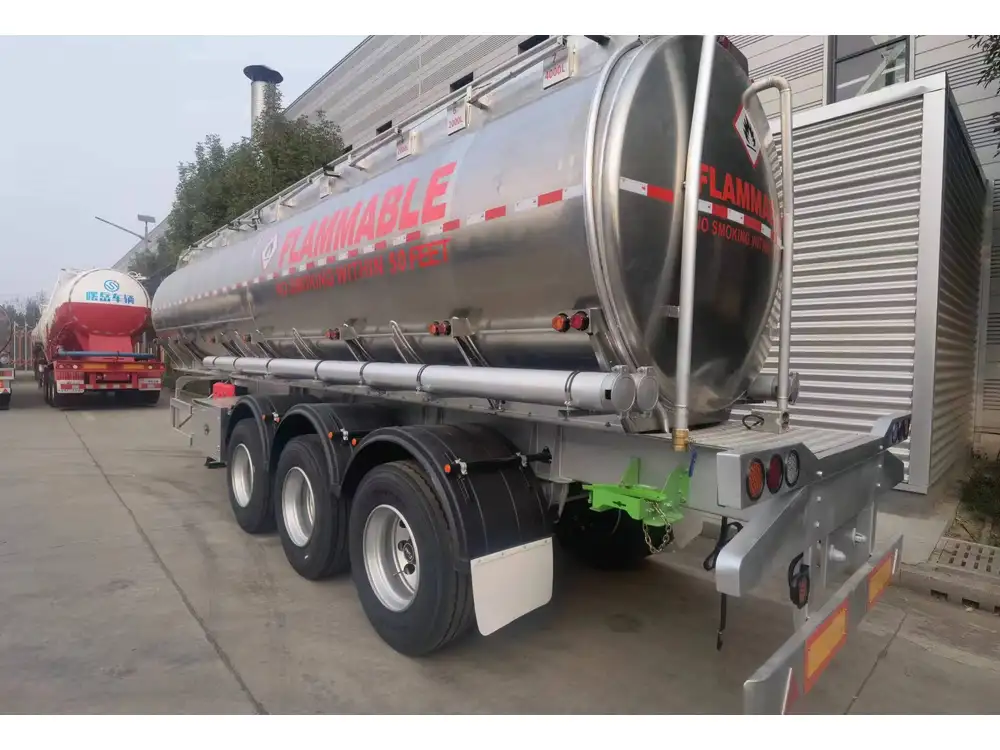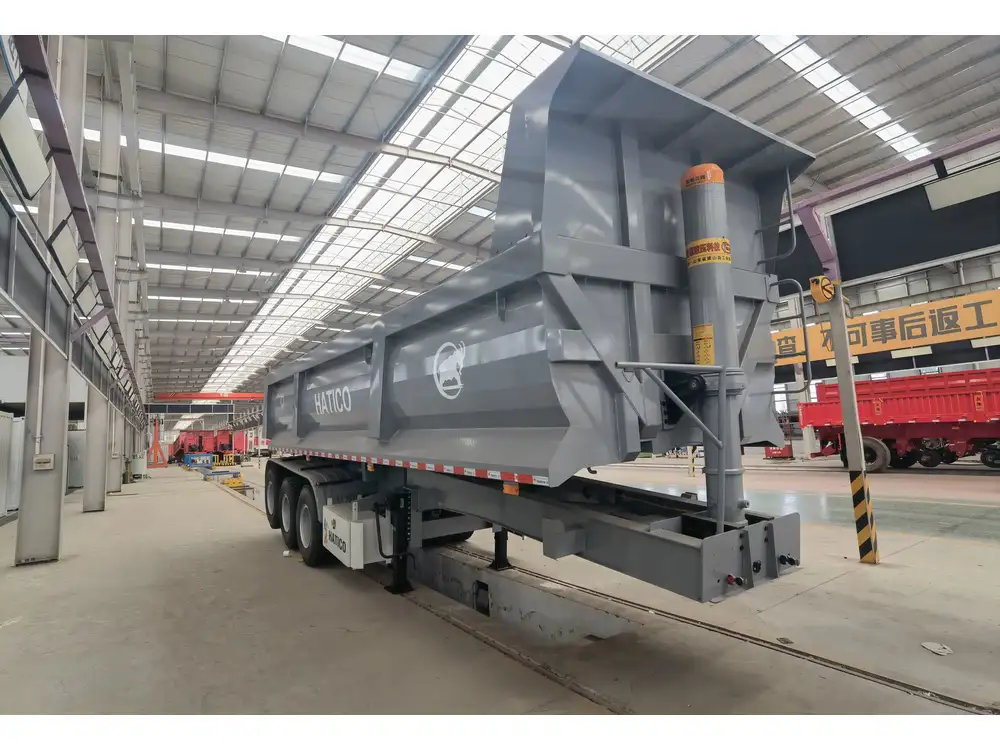When considering the purchase or use of a 12 ft dump trailer, one of the most pivotal aspects to contemplate is its weight. Understanding how much a 12 ft dump trailer weighs can not only inform your decision-making process but also impact towing capabilities, regulations, and the overall functionality of your hauling needs. Below, we delve into the weight specifics, types, and various factors affecting trailers to equip you with the knowledge necessary for your next project.
Weight Specifications: Unpacking the Numbers
Average Weight Range of 12 ft Dump Trailers
The weight of a 12 ft dump trailer can fluctuate based on several variables, including construction materials, design, and features. On average, however, you can anticipate the weight to fall within a range of 2,500 to 3,500 pounds (approximately 1,134 to 1,588 kilograms).
| Type of Dump Trailer | Estimated Weight (lbs) | Estimated Weight (kg) |
|---|---|---|
| Steel Frame, Basic Features | 2,500 – 3,000 | 1,134 – 1,361 |
| Aluminum Frame, Lightweight | 1,800 – 2,500 | 816 – 1,134 |
| High-Capacity Models | 3,000 – 3,500 | 1,361 – 1,588 |

Importance of Weight in Dump Trailer Selection
When selecting a dump trailer, weight is crucial for several reasons:
- Towing Capacity: Knowing the weight helps in matching it with your vehicle’s towing capacity, ensuring safe transport.
- Payload: The ability to carry materials without exceeding your trailer’s limit is critical. Overloading can lead to accidents or legal repercussions.
- Fuel Efficiency: Heavier trailers can lead to reduced fuel efficiency in tow vehicles.
- Stability: The weight distribution of the load affects the overall handling of the vehicle during transport.
What Influences the Weight of a 12 ft Dump Trailer?
1. Material Composition
The choice of materials plays a significant role in determining the weight of the trailer:
- Steel Frame: More durable but heavier, making it suitable for heavy loads yet requiring a more robust towing vehicle.
- Aluminum Frame: Lightweight and resistant to rust, optimal for towing efficiency, but may have a lower payload capacity.

2. Design and Features
The design complexities and additional features can modify the weight:
- Drop-Down Sides: Providing accessibility, these may add extra weight compared to standard trailers.
- Axle Configuration: Single or dual axles affect the trailer’s weight, stability, and load-bearing capacity. Typically, dual axles provide extra strength but also increase the overall weight.
3. Accessories and Add-Ons
Consider the impact of accessories:
- Tarp Systems: While providing load security, tarps add extra weight but enhance usability.
- Extra Storage Compartments: Accessible areas for tools and other equipment can add to the trailer’s weight.
Regulatory Considerations: What You Need to Know

Towing Regulations
Understanding local regulations related to towing and trailer weight is paramount. Different regions have distinct weight limits for trailers, often determined by the type of vehicle towing the trailer. It’s essential to consult with local Department of Motor Vehicles (DMV) or transportation authorities to ensure compliance.
Load Limits
In addition to the weight of the trailer itself, payload limits also play a vital role. Most dump trailers will list a Gross Vehicle Weight Rating (GVWR) which includes trailer weight plus the maximum payload it can carry:
- GVWR: This figure indicates the maximum weight the trailer can safely handle, which typically exceeds the trailer’s base weight for safer operation.
Example of Typical Load Limits
| Trailer Weight Range (lbs) | Maximum Load Capacity (lbs) | Total Weight (lbs) |
|---|---|---|
| 2,500 – 3,000 | 5,000 – 8,000 | Up to 10,000 |
| 3,000 – 3,500 | 6,000 – 9,000 | Up to 12,000 |

Assessing Your Towing Vehicle: Compatibility Matters
Before selecting a 12 ft dump trailer, it’s essential to ensure that your towing vehicle has the appropriate capacity. The towing capacity is influenced by several factors, including:
- Engine Power: Higher horsepower ratings correlate with more substantial towing capabilities.
- Transmission Type: Some vehicles with automatic transmissions can handle more weight than their manual counterparts.
- Suspension System: Stronger suspension systems provide better stability when towing heavy loads.
Checklist for Evaluating Towing Compatibility
- Manufacturer’s Towing Guidelines: Review your vehicle’s manual for recommended towing capacities.
- Hitch Specifications: Check if your hitch is appropriately rated for the trailer’s weight.
- Brake Systems: Confirm if your vehicle is equipped with a brake controller, especially for heavier trailers.
Safety Considerations: Prioritizing Security on the Road
Safety cannot be overstated when towing a dump trailer. Implementing good practices and utilizing safety features can make all the difference.

Regular Maintenance
Routine checks on both your towing vehicle and the trailer itself, focusing on the following:
- Tire Pressure: Proper inflation ensures better control and fuel efficiency.
- Brake Functionality: Adequate braking systems in trailers are crucial in emergency situations.
- Lights and Indicators: Ensure all lights are functional for visibility, especially at night.
Weight Distribution and Loading Tips
- Even Load Distribution: Aim to distribute weight evenly across the trailer for better handling.
- Use Safety Chains: Always secure the load and attach safety chains between the trailer and towing vehicle.
- Balance the Payload: Position heavier items low and close to the trailer axle to reduce tipping risk.
Frequently Asked Questions (FAQ)

Q1: Can I tow a 12 ft dump trailer with a lightweight truck?
If your truck meets the optimal towing capacity for the dump trailer, it can be feasible. Always check the individual specifications of both the trailer and the truck.
Q2: Are there lightweight models available of the 12 ft dump trailer?
Absolutely. Aluminum models tend to be considerably lighter and can be easier for manipulative tasks without compromising strength.
Q3: How does the weight of my trailer affect fuel efficiency?
Typically, heavier trailers result in lower fuel efficiency as they require more power and thus more fuel to transport. It’s prudent to consider fuel consumption costs when selecting a dump trailer.

Q4: What is the best way to ensure my trailer isn’t overloaded?
Check for the trailer’s weight specifications, and always weigh your load using a truck scale if available. Adhering to manufacturer limits ensures safety and compliance.
Conclusion: Making an Informed Decision
In conclusion, understanding the weight of a 12 ft dump trailer and its influencing factors is essential for safe and effective use. Whether you’re hauling construction debris, landscaping materials, or other heavy items, being informed about your trailer’s specifications, your vehicle’s towing capabilities, and the pertinent regulations can lead to a more efficient and trouble-free experience. Prioritizing safety and compliance not only protects you but also ensures a positive outcome for your hauling needs. As you make your decision on purchasing or using a 12 ft dump trailer, refer back to these insights for guidance, ensuring you select the adequate equipment for successful operations.



